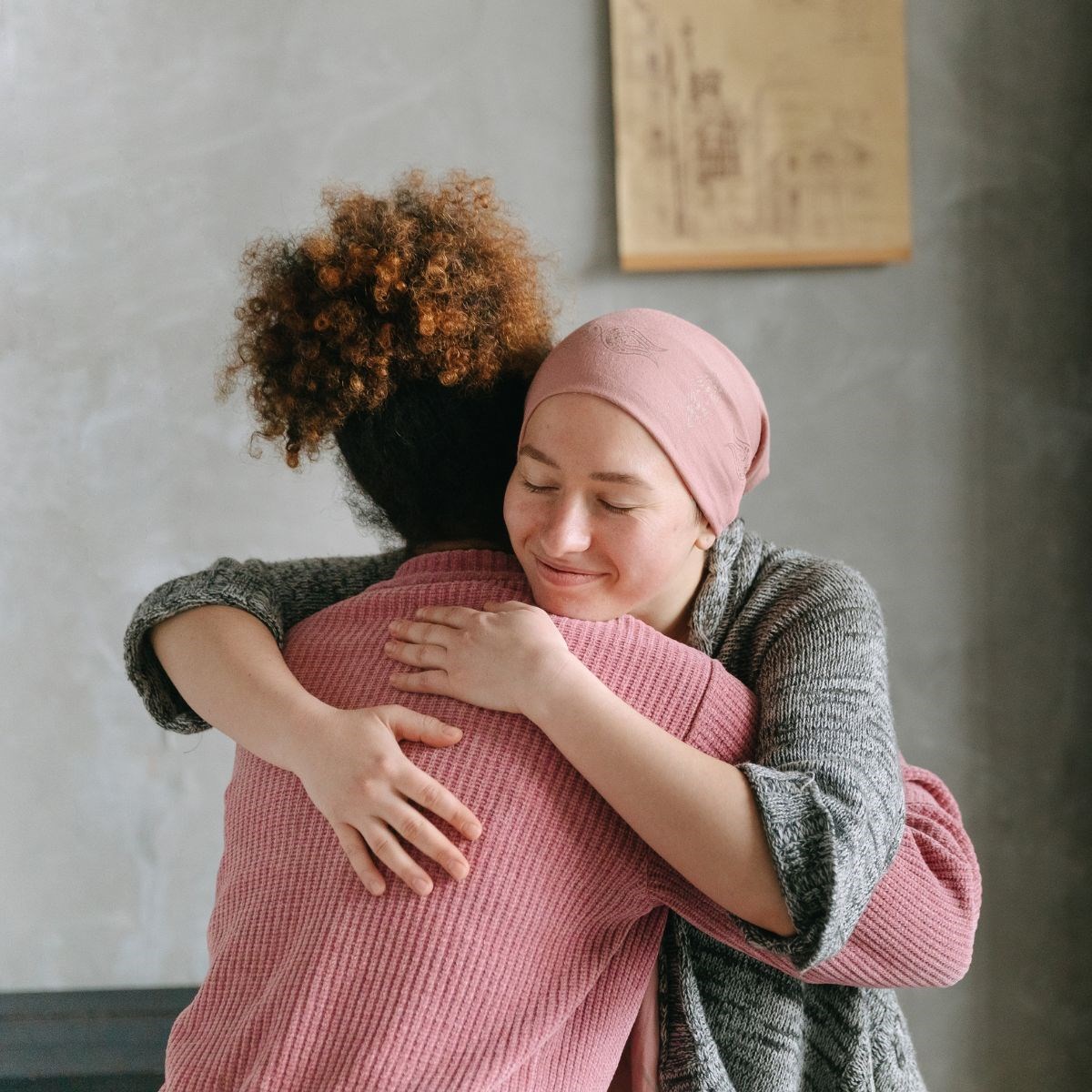Cancer and your mental health

This World Cancer Day (4 February 2024) Dr Abi Wroe, our Clinical Health Psychologist, explains how cancer can affect your mental health and how you can look after your wellbeing if you have been diagnosed, are getting treatment or when treatment has ended.
Many people living with cancer, regardless of what stage, or type your cancer is, can experience depression or anxiety.
You may be feeling overwhelmed, angry, distressed, grief or fearful. Everyone’s journey is unique, and it’s okay to experience a range of emotions. Sometimes, it can be helpful to think how you can manage with these different feelings.
If you feel you are experiencing low mood or excessive worries which impact on your day-to-day life such as having a lack of motivation to do simple tasks, or overwhelming worries, you might want to consider asking for support.
Five tips for looking after your wellbeing if you have cancer:
- Identify activities that bring you joy and relaxation and try to incorporate them into your daily routine. This will not only bring you a sense of pleasure and fulfilment, but also a sense of achievement. Some people find it helpful to use a bullet journal to plan and review activities. A bullet journal is a mix of a daily planner, to-do list, and diary, and allows you to record achievements, goals, thoughts, inspiration, and reflections in an organised and creative way. Some people also find it helpful also to write down how they are feeling.
- Establish a support network. You may find it helpful to think about the people around you who can support you. This might include family, friends, health professionals or others you have met through your cancer journey. The support might be social or practical. You may also find it helpful to talk about how you are feeling, particularly during difficult times.
- Practice mindfulness and relaxation. Try some mindfulness or calm, soothing breathing exercises to help you manage anxiety, or activities such as yoga which combines physical activity and mindfulness.
- Focus on what you can control. Develop a daily or weekly routine that provides some structure and predictability, helping to reduce feelings of chaos.
- Stay informed. Choose reliable sources for information such as the NHS website or your GP and discuss concerns with your healthcare team.
How can NHS Talking Therapies help?
There are several reasons why you may become depressed or anxious. These may be related to cancer, such as worries about cancer returning, low mood which is harder to manage since having cancer diagnosis, or concerns about money, housing or work. It may not be particularly related to cancer; it could be stressful life circumstances, generalised worries and/or feeling low and hopeless about life in general.
NHS Talking Therapies can help you manage feelings of depression and anxiety. We offer a range of different treatments, including Cognitive Behavioural Therapy (CBT) and Counselling for Depression.
If you have concerns or worries relating specifically to your cancer, for example, managing treatment or side effects, or distress particularly related to living with cancer – it might be helpful to talk to your cancer treatment team who can offer support which is specific to cancer.
Find out more
- Sign up to NHS Berkshire Talking Therapies (opens in new browser tab)
- Read more about our different therapies (opens in new browser tab)
- Read our blog on breathing techniques (opens in new browser tab)